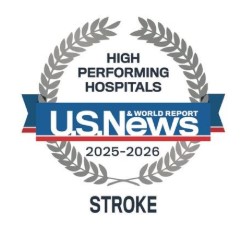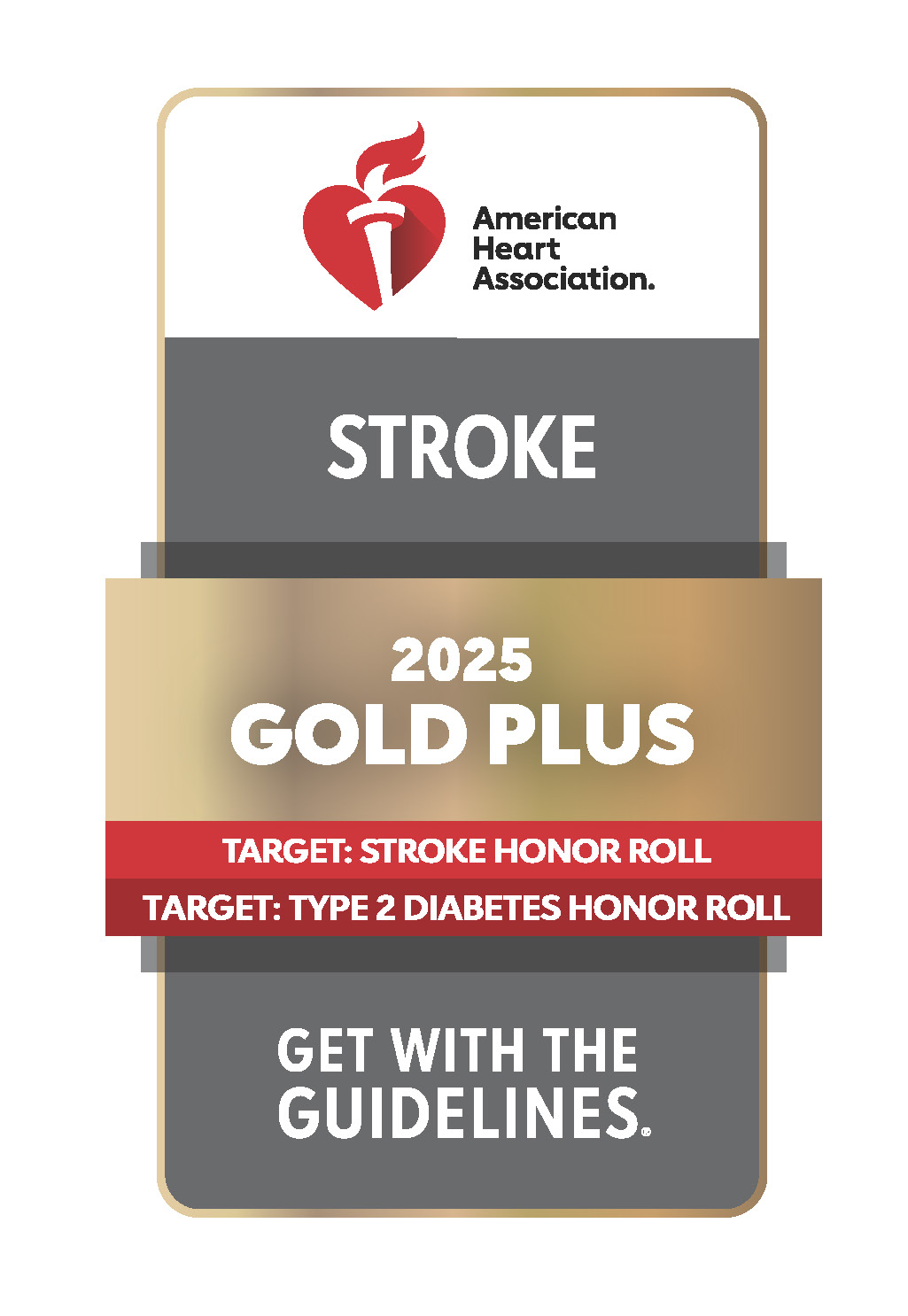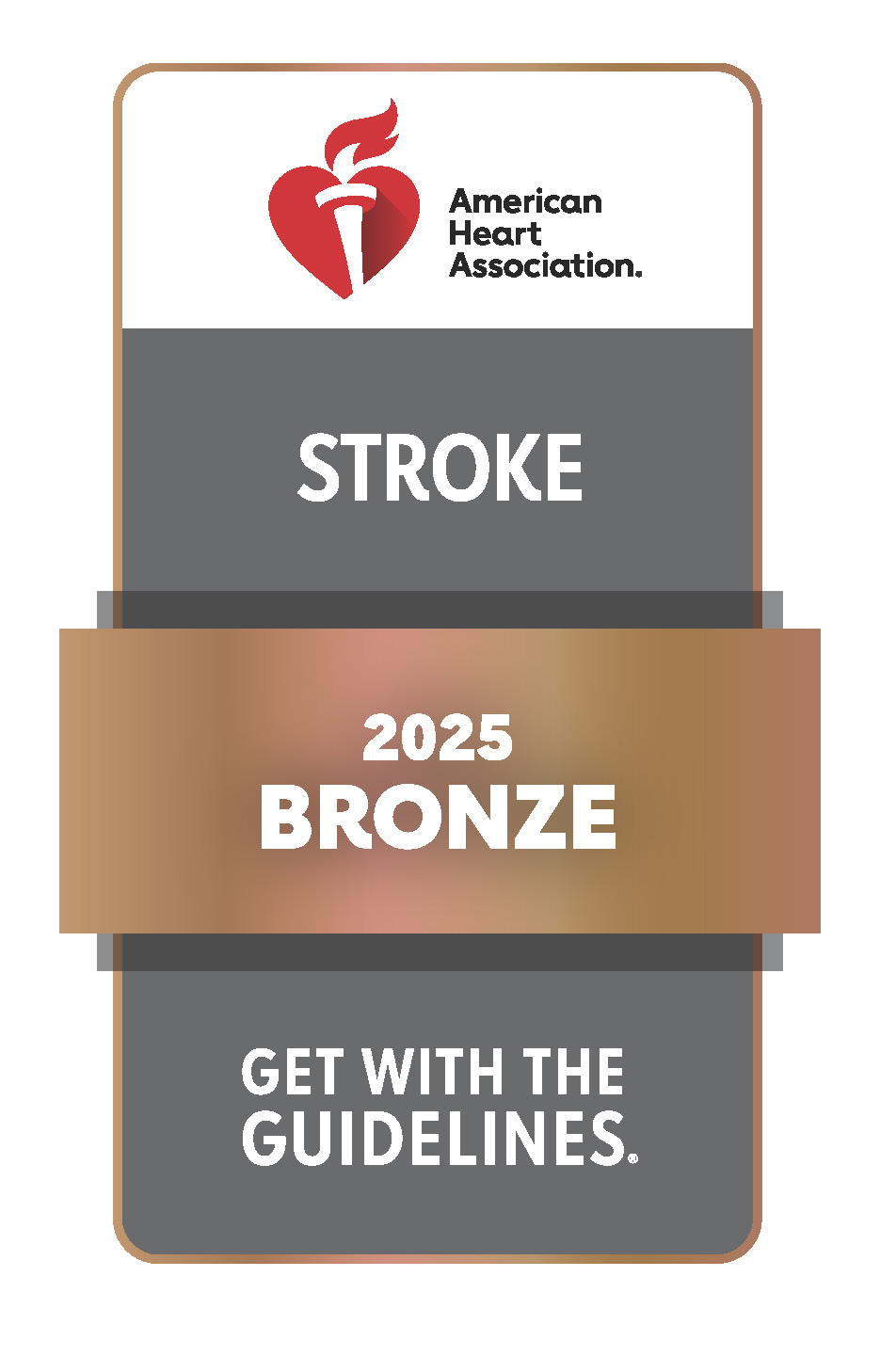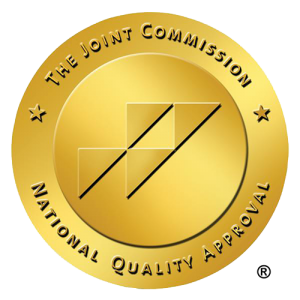Stroke Prevention, Diagnosis, Treatment and Rehabilitation
Stroke is a leading cause of adult disability and the third leading cause of death in the United States. A stroke occurs when a blood vessel bringing blood and oxygen to the brain gets blocked or ruptures which stops brain cells from receiving the blood flow that they need. When brain cells are damaged, the part of the body that they control can no longer function as it used to. Every stroke is different and the effects depend on the area of the brain affected and the length of time those cells are without oxygen. In some cases, we can administer a clot-busting drug and/or perform a clot retrieval procedure, called mechanical thrombectomy, to diminish the effects of a stroke.
The services for stroke care at St. Elizabeth Healthcare extend from prevention and diagnosis to treatment and rehabilitation. Our stroke services include:
Collaboration with EMS and Stroke Team
Specialized Nursing Staff
Outcomes:
A grading system is used to measure how well blood flow is restored following mechanical thrombectomy treatment. This is called the thrombolysis in cerebral infarction (TICI) score. Scoring is defined as follows:
- Grade 3: Complete restoration of blood flow to the brain.
- Grade 2c: Near-complete restoration of blood flow to the brain, but slower than normal.
- Grade 2b: More than 50% restoration of blood flow to the brain.
- Grade 2a: Less than 50% restoration of blood flow to the brain.
- Grade 1: Minimal restoration of blood flow to the brain.
- Grade 0: No restoration of blood flow to the brain.
A TICI score of 2b, 2c, or 3 is considered successful treatment for restoring blood flow in the brain.
At St. Elizabeth Healthcare – Edgewood, 79.7% (January 2024 – June 2025) of patients who received thrombectomy treatment for stroke achieved a TICI score of 2b, 2c, or 3.
SIGNS OF A STROKE B.E. F.A.S.T.
DON’T DRIVE. DON’T DELAY. CALL 911 RIGHT AWAY.
The sooner you call 911, the better chance of recovery.
Medical experts agree that the best way to prevent death and severe debilitation from stroke is to get treated in the earliest stages. That means everybody should learn to recognize the warning signs.
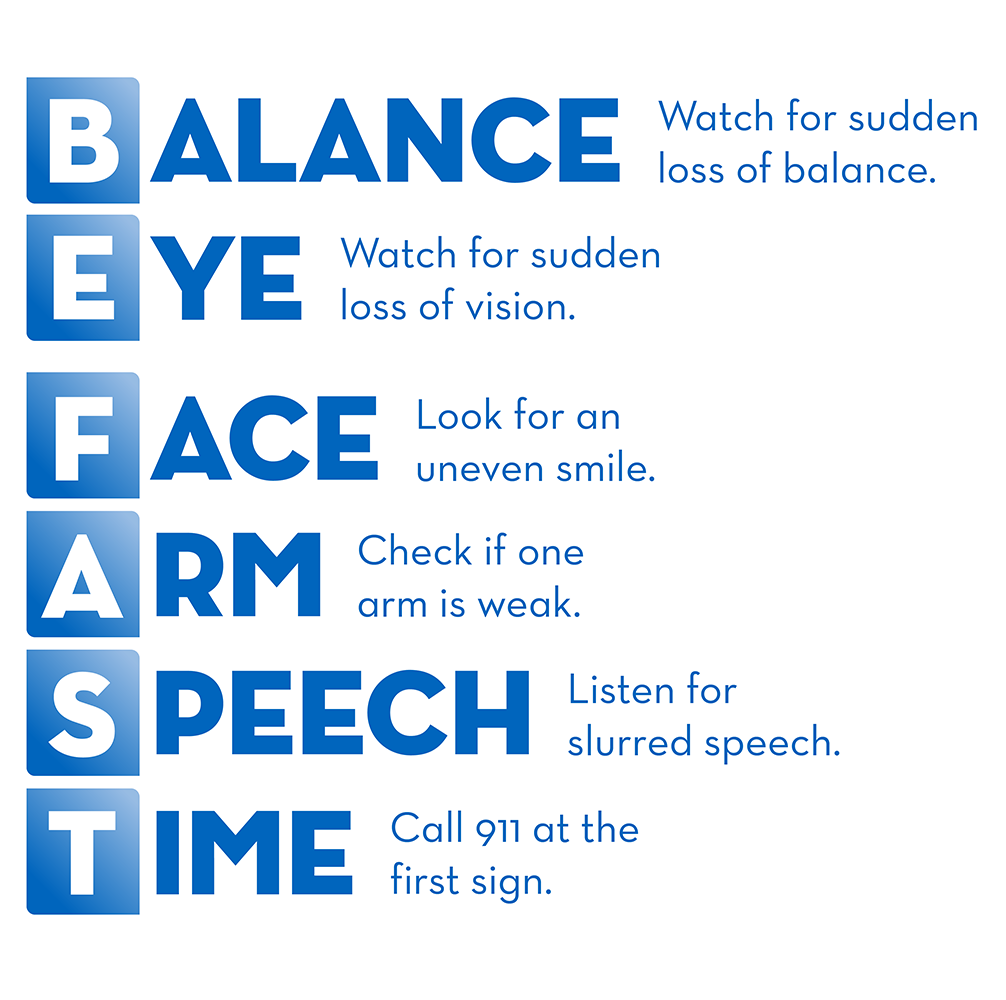
What to Do
- Call 911 or emergency responders immediately!
What Not to Do
- Do not make a doctor’s appointment.
- Do not drive yourself or the patient to the hospital.
- Do not wait for additional symptoms.

Signs of a “Mini Stroke”
Transient Ischemic Attack or TIA, is a “mini stroke” that occurs when a blood clot blocks an artery for a short period of time. The symptoms of a TIA are like the warning signs of a stroke but usually only last a few minutes. TIAs are strong predictors of whether or not you are at risk for stroke. Don’t ignore these warning signs and be sure to seek medical attention immediately.
Awards and Recognition
The American Heart Association and American Stroke Association recognizes St. Elizabeth Healthcare for our continued success in using the “Get With the Guidelines®” program.
- St. Elizabeth Edgewood
- St. Elizabeth Florence
- St. Elizabeth Ft. Thomas
